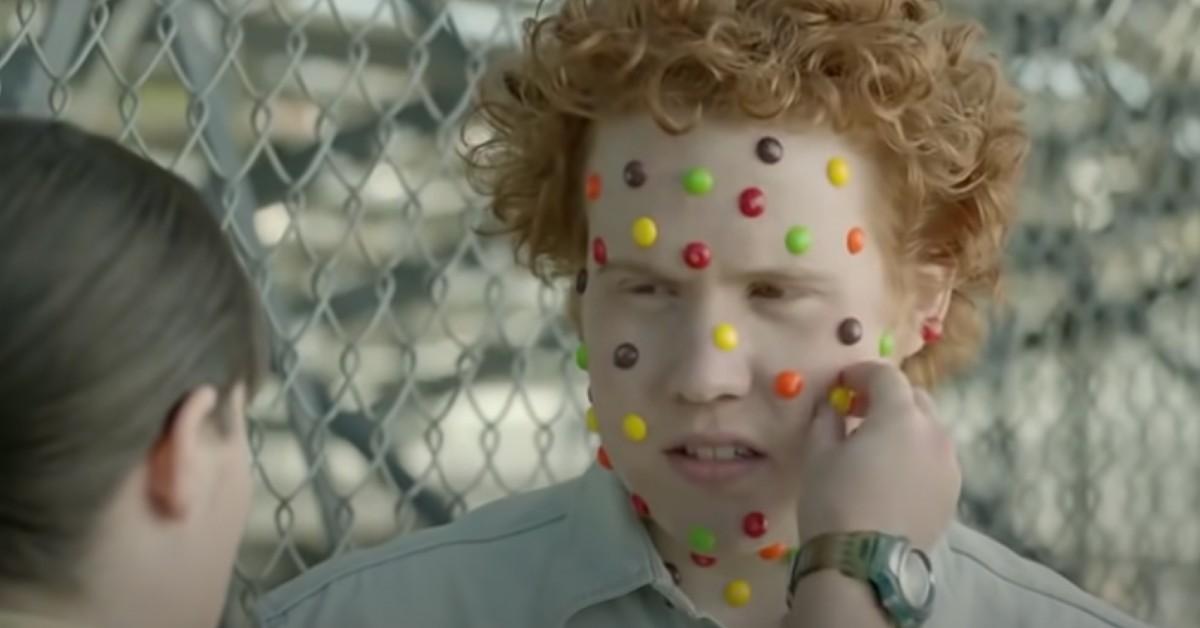This is the hip new way of being against capitalism. It is meant to keep people safe by controlling what you can eat.
My kid, who is 9, and his wrestling team-mates often buy Skittles during tournaments. They think that eating them before games, especially specific colored ones, gives them energy.
One youngster informed me, "The red ones make you kick a**." (I told him that was good, but that he shouldn't use that word.)
Skittles has been talked about in the press lately. A bill in California would make it illegal to sell the candy, which came to North America for the first time in 1979. Critics say that brominated vegetable oil, red color No. 3, propylparaben, titanium dioxide, and potassium bromate, all of which most people have never heard of, are harmful.
"Why are these dangerous chemicals in our food?" wondered Susan Little, who works to protect people's health. "We know they are bad for you, and it's likely that children eat more of these chemicals than adults do."
Candy businesses say the accusations aren't true, pointing out that the Food and Drug Administration hasn't prohibited any of the chemicals.
A spokeswoman for the National Confectioners Association said, "Food safety is the most important thing for U.S. candy companies." "It's safe to eat chocolate and candy, as it has been for hundreds of years."
Parents might be surprised when they hear that Skittles are bad for you, but they shouldn't be. The battle against Skittles is part of a larger plan to keep people from buying certain things.
That car you drive that runs on gasoline? Sorry, it's a threat to the world's very existence. Big sugary drinks you like to drink with your New York-style pizza? Not even close. The plastic straw you're using to sip your drinks? This is also bad for the environment. Don't even think of getting a stove that runs on gas.
This is the hip new way of being against capitalism. It's meant to keep people safe by controlling what they eat, drive, how big their homes are, and how many calories they can eat each day. Das Ende des Kapitalismus, a best-selling book by German author Ulrike Herrmann, explains the idea in depth. (English: The End of Capitalism).
Of course, not all of these plans have yet come to fruition. Many, like California's ban on selling cars that run on gas, won't take effect for years.
Nor is all opposition to capitalism the same. Some people wish to stop eating meat to save the environment. (in parts of Europe, this is primarily being done through emission regulations). Others try to preserve the public's health by getting rid of goods or food elements they think are bad for it, like Skittles.

But notice the common theme: in both cases, they get to decide, not you. This is what's important.
The best-selling economist Thomas Sowell said, "The most basic question is not what is best, but who will decide what is best."
It would sound silly to ban Skittles, but it's not. It goes against the principle of limited government and the belief that consumers should be able to choose what to buy on their own. It's a fight about who has power in society and decides what gets made: consumers or planners.
And that's essentially what the Skittles fight is about: politics, power, and influence. In fact, people who support the bill concede that they don't expect it will succeed in California, but they hope it will get the FDA's attention.
Diana Winters, a professor at the UCLA School of Law, told the Guardian, "I think its goal, which is important, is to get the FDA to look at these chemicals again and maybe reevaluate its whole system for reviewing food additives."
I won't tell you whether or not you should eat Skittles as Winters did. I don't know anything about brominated vegetable oil. But I do know that youngsters are fine even if tens of billions of Skittles are eaten every year. I know that the government has banned other candy that is absolutely harmless.
So, certainly, I'll keep letting my son eat Skittles before his games. As for concerns from public health professionals, I don't give them as much weight as assertions that the red Skittles help him "kick a**."













